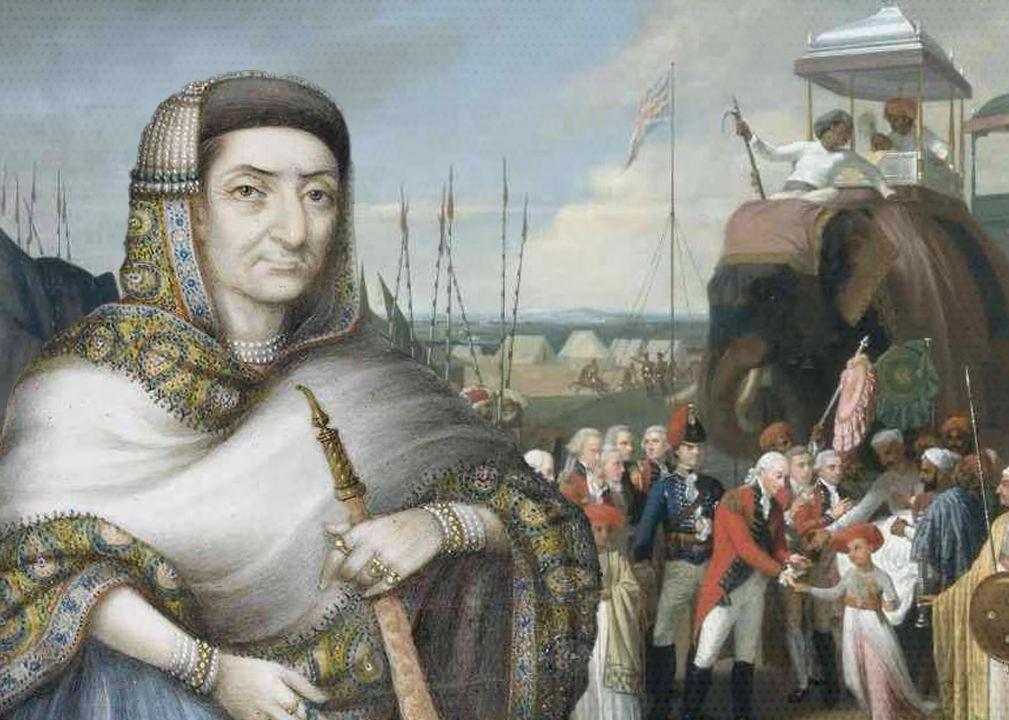
Women Entrepreneurs in Indian History: Begum Samru & Jibhabu
India, a land of rich cultural heritage and vibrant history, has been home to numerous pioneering women who have left an indelible mark on the nation’s entrepreneurial landscape. Two such women who have captured our imagination are Begum Samru and Jibhabu, whose stories of resilience, diplomacy, and strategic leadership are a testament to their unwavering determination to succeed.
Begum Samru: The Queen of Sardhana
Born as Imhoff, Begum Samru was a German woman who rose to prominence in 18th-century India. She was a courtesan, a businesswoman, and a military leader, who, through her wit and diplomacy, ruled a 621-square km estate in Sardhana, Uttar Pradesh, for over three decades. Her remarkable journey began when she was just 16 years old and was brought to India by her German employer, Walter Reinhardt Sombreff, who was a merchant and a British East India Company agent.
Imhoff soon became a favorite of the local Nawab, and her charm and beauty won her the title of Begum Samru. She married the Nawab, Saadat Ali Khan, and upon his death, she became the ruler of Sardhana, a large estate that was then a significant trade hub. Begum Samru’s leadership was marked by her exceptional diplomatic skills, which she used to maintain peace and stability in the region. She was a shrewd businesswoman, who invested in agriculture, trade, and commerce, earning her the respect and admiration of her contemporaries.
Jibhabu: The Negotiator Extraordinaire
Born in the 18th century in Gujarat, Jibhabu was a woman who defied societal norms by taking charge of her family’s land revenue business. She was a skilled negotiator, who, through her strategic leadership, restored her family’s business to its former glory. Jibhabu’s story is a testament to her unwavering determination and business acumen.
When the East India Company (EIC) arrived in Gujarat, it posed a significant threat to the local land revenue business. Jibhabu, however, saw an opportunity in the situation and negotiated with the EIC to secure a favorable agreement for her family’s business. Through her negotiations, she ensured that her family’s business interests were protected, and she even managed to secure a significant share of the revenue generated by the EIC’s activities in the region.
Lessons from Begum Samru and Jibhabu
The stories of Begum Samru and Jibhabu are a testament to the entrepreneurial spirit that has always been a hallmark of Indian culture. These women, who lived in a time when women were expected to conform to traditional norms, defied societal expectations and carved out their own paths. Their journeys are a reminder that entrepreneurship is not just about business acumen but also about strategic leadership, diplomacy, and the ability to adapt to changing circumstances.
Conclusion
In a society where women were expected to be submissive and obedient, Begum Samru and Jibhabu were pioneers who broke the mold. Their stories are a testament to the power of entrepreneurship and the impact that women can have on the business world. Today, as we celebrate their legacies, we are reminded of the importance of mentoring and empowering women entrepreneurs, who are the backbone of any society’s economic growth.
Sources:
https://ascendants.in/business-stories/pioneering-women-entrepreneurs-history/






